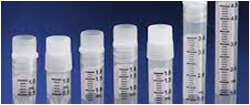Liquid Chromatography
Liquid Chromatography Tandem Mass Spectrometry (LC-MS/MS) is a powerful analytical technique used in various scientific and clinical applications. Here are some reasons why LC-MS testing is employed:
High Sensitivity and Specificity
LC-MS/MS is highly sensitive, allowing the detection of trace levels of analytes in complex matrices. It also offers excellent specificity, enabling the differentiation of closely related compounds based on their chemical properties and molecular weight.
Quantitative Analysis
LC-MS/MS allows for robust quantification of analytes in a sample. This is essential in pharmaceutical industry, environmental monitoring, and clinical diagnostics, where the quantification of specific compounds needs to be determined.
Analysis of Complex Mixtures
LC-MS/MS is particularly valuable for analyzing complex mixtures, such as biological fluids, environmental samples, and food matrices. Chromatographic separation of individual components prior to entering the mass spectrometer, facilitates the quantification of multiple compounds in a single analysis.
Proteomics and Metabolomics
LC-MS/MS is a key tool in proteomics and metabolomics studies. It is used to analyze complex biological samples to identify and quantify proteins, peptides, and metabolites, providing insights into biological processes and disease mechanisms.
Drug Discovery and Development
In the pharmaceutical industry, LC-MS/MS is crucial for drug discovery and development. It is used to assess the pharmacokinetics and metabolism of drug candidates, identify metabolites, and monitor drug concentrations in biological samples.
Clinical Diagnostics
LC-MS/MS is utilized in clinical laboratories for the analysis of biomarkers, drugs, and metabolites in patient samples. It plays a crucial role in diagnostic testing, therapeutic drug monitoring, and disease monitoring.
Quality Control in Food and Beverages
LC-MS/MS is employed for quality control in the food and beverage industry. It helps detect contaminants, additives, and adulterants, ensuring the safety and quality of food products.

Get a Quote
Need a high-quality biostorage facility for your critical specimens? We got that.
